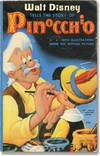
The Kaiser's U-Boat Assault on America: Germany's Great Gamble in the First World War
by Hans Joachim Koerver
- New
- Hardcover
- first
- Condition
- New/New
- ISBN 10
- 1526773864
- ISBN 13
- 9781526773869
- Seller
-
Dover, Kent, United Kingdom
Payment Methods Accepted
About This Item
Barnsley: Pen & Sword Military, 2020. Why did a long time reluctant US President Wilson finally enter World War I on the side of the Allies in April 1917? In retaliation of the British naval blockade of Germany since August 1914, the German Admirals determined at the beginning of 1915 to create a counter-blockade of the British Isles with their submarines. The U-boat commanders got – without knowledge of the government - a secret order to sink Allied passenger liners. The British Admiralty discovered the hunt for passenger liners by deciphering W/T messages to the U-boats. The sinking of the Lusitania on May, 6th, 1915, was no coincidence – the Royal Navy knew about the intentions of the U-boats and, after doing everything to protect the passenger liners in the beginning, they simply left the Lusitania alone in in the first week of May, to create frictions between America and the German Empire. A diplomatic quarrel between US President Wilson and Germany about U-boat warfare commenced. In spring of 1916 the German Navy acted again against the instructions of the Kaiser and ordered secretly the sinking of allied and neutral vessels in the British Channel, thereby opening an unrestricted U-boat war. When the channel ferry Sussex was attacked, Wilson threatened to break off of diplomatic relations with Germany. Under massive diplomatic pressure the German government had to give in. Further on, their U-boats only conducted a “soft”, restricted warfare, following the internationally agreed maritime rules and tolerated by Wilson. In Germany a heated debate set in after the Sussex case. The Navy promised the quick defeat of England by unrestricted U-boat war, and the Army joined this campaign end of 1916. The intention of the “war party” was to rule out any possibility of a negotiated peace and to set the German Empire on a – risky - course for definitive victory. But the government doubted the Navy’s capability for all-out U-boat warfare and argued that the only definitive result would be an America siding the Allies, leading to ultimate defeat. In the last months of 1916 it sent out peace feelers to Wilson, warning him, that in the case of a failure of his peace mediation they would get under unbearable pressure of the “military opposition” to begin unrestricted U-boat war again. At this time Britain was – like Germany – economically with its back against the wall: it suffered terribly by the sinking of its merchant ships, the moral of its Admiralty in Anti-Submarine-Warfare had completely broken down. Collapse was threatening. But the British government got wind of the conflicts inside Germany by the deciphering of the diplomatic cables between Wilson and the Germans. The new Prime Minster, David Lloyd George, chose a risky strategy – by rebuffing all American peace efforts he wanted to encourage the radical party in Germany to enforce total U-boat war. Finally this British strategy payed out: German Navy and Army pressed the Kaiser to declare unrestricted U-boat war from 1st of February 1917 on, and Wilson broke off diplomatic relations. But he still bristled to enter the war on Allied side – as long as American ships would be treated correctly by the Germans, he wouldn’t come in, not even after the publication of the Zimmermann-telegram. The tipping point came in the middle of March, when U-boats torpedoed American vessels without warning. This forced the American Declaration of War against the German Empire on April 6, 1917.. 1st Edition. Hard Cover. New/New. 8vo - over 7¾" - 9¾" tall.
Reviews
(Log in or Create an Account first!)
Details
- Bookseller
- Allen Williams Books
(GB)
- Bookseller's Inventory #
- 160916
- Title
- The Kaiser's U-Boat Assault on America: Germany's Great Gamble in the First World War
- Author
- Hans Joachim Koerver
- Format/Binding
- Hardcover
- Book Condition
- New New
- Jacket Condition
- New
- Edition
- 1st Edition
- ISBN 10
- 1526773864
- ISBN 13
- 9781526773869
- Publisher
- Pen & Sword Military
- Place of Publication
- Barnsley
- Date Published
- 2020
- Size
- 8vo - over 7¾" - 9&f
Terms of Sale
Allen Williams Books
We carry over 57,000 titles so we will almost invariably be unable to let you know straight away availability and shipping costs without checking.
If you feel you must phone please remember the time difference.
Calls from within the UK are more than welcome.
Please only call between 9am - 5pm Monday to Friday. PLEASE DO NOT PHONE OUTSIDE THESE HOURS, EVEN BOOK DEALERS LIKE TO TAKE SOME TIME OFF.
Strictly mail order, no callers please.
UK cheques made out to Allen Williams are welcome. Payment would be needed prior to despatch.
Overseas customers payment would be by credit card or International Money Order prior to despatch, we do not accept foreign cheques.
Visa, Mastercard, Amex, Switch, Delta and Solo accepted.
Multiple copies may be available.
UK orders will be sent 1st Class or International by airmail unless otherwise specified.
Any book can be returned if not correctly described.
About the Seller
Allen Williams Books
Biblio member since 2006
Dover, Kent
About Allen Williams Books
We sell a mix of used and new books
Glossary
Some terminology that may be used in this description includes:
- New
- A new book is a book previously not circulated to a buyer. Although a new book is typically free of any faults or defects, "new"...


